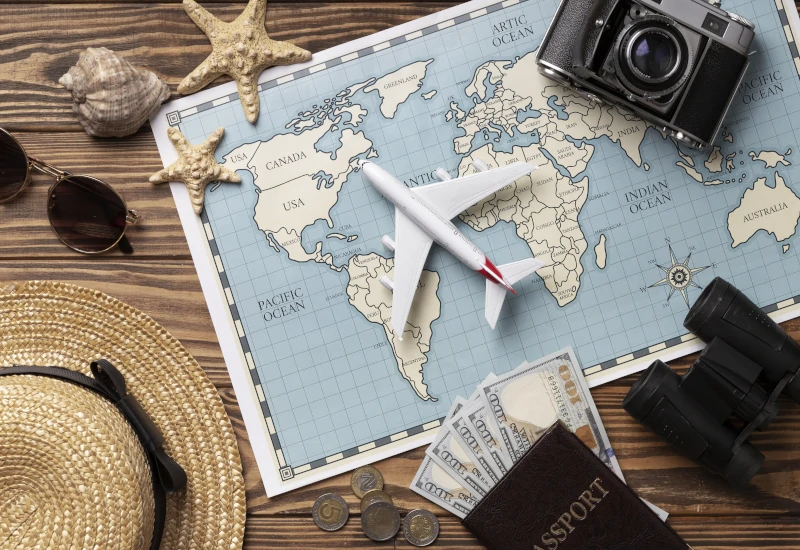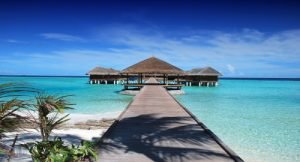Travel and wellness, a combination not always successful
How wonderful it is to travel, even to imagine doing so... Sometimes, however, after a vacation it happens that we feel more tired than when we left, most of the time it is the result of stressful vacation, perhaps too full of activities, real tour de force, to visit as much as possible a location and try to enjoy as much as possible all that it has to offer us in the time, perhaps short, that we have available.
Traveling should be a relaxing activity, disconnect from stress, change the air, and return refreshed and enriched by the experience. If you had this intention when you left but failed to achieve it, then prepare for your next trip differently perhaps by focusing more on wellness.
The concept of "Travel and Wellness" is now increasingly popular and appreciated by a growing number of people. These types of trips go beyond just a relaxing vacation, as they aim to promote a healthy lifestyle and a holistic approach to the physical and mental health of travelers.
This type of journey will take you on a journey of personal discovery through experiences that allow you to connect with nature, practice physical activities, nourish your mind and spirit, and learn new ways to take care of yourself.
The trip can include a wide range of experiences, such as participating in yoga or meditation retreats, staying at spas, playing outdoor sports, or taking healthy cooking classes and more.
Wellness travel is not just about choosing a specific destination, but is primarily an approach to travel that places physical and mental health at the center, the balance between body and mind. In this way, you can make the most of your experiences during the trip, returning home rejuvenated, inspired and with a new sense of well-being and self-awareness.
Travel in general is not just an option for those who have a lot of time and money on their hands, everyone can travel according to their budget and find their way through a variety of activities, this experience could be the key to opening new horizons and enriching your life in surprising ways.
In this article, we will explore the various aspects of the "Travel and Wellness" idea, analyzing the benefits, different types of vacations, how to prepare, and more.
Benefits of wellness travel
Travel and wellness can go very well together if you plan well, here are some of the main benefits:
Improved physical health:
Practicing physical activities while traveling, such as hiking, yoga or water sports, helps to keep the body fit and improve stamina and flexibility. In addition, visiting spas or thermal spas can help reduce stress and relieve muscle and joint pain.
Mental and emotional well-being:
Spending time on yourself and focusing on your inner health can lead to greater self-awareness, stress reduction and improved mood. Meditation, mindfulness and holistic therapies are all practices that can help you achieve mental and emotional balance. Remember the purpose of your journey; it doesn't have to turn into a stressful thing!
Personal and spiritual growth:
Through the discovery of new cultures, traditions and wellness practices, it is possible to broaden one's horizons and gain greater awareness of oneself and one's place in the world. This can lead to greater self-esteem, empathy and open-mindedness.
Strengthening interpersonal relationships:
Traveling with friends, family or in groups to share wellness experiences can strengthen bonds and create lasting memories. In addition, attending retreats or workshops can provide opportunities to meet new people with similar interests and create new friendships.
Renewed sense of balance and harmony:
Taking time for self-care and wellness while traveling can help restore a balance between body, mind and spirit, fostering a sense of inner peace and harmony that can be carried forward even when returning home.
Inspiration for a healthier lifestyle:
Experiencing new wellness practices, healthy foods and physical activities while traveling can encourage incorporating these habits into daily life, promoting a healthier and more active lifestyle even after returning home.
In conclusion, a short weekend of relaxation or a long journey of discovery can be a life-enriching experience in many ways.
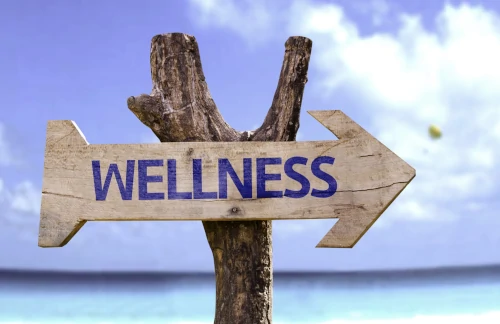
Types of wellness trips
There are several types, each of which offers unique experiences tailored to the needs and desires of the traveler.
Below, we list some of the most popular ones:
Yoga and meditation retreat: these trips focus on the practice of yoga and meditation, providing an opportunity to deepen one's knowledge of these disciplines and improve one's physical and mental well-being. Retreats can range from simple weekends to one- or two-week stays and can be located in quiet, nature-filled places such as mountains or beaches.
Vacations in spas and wellness centers: these trips involve stays at specialized facilities that offer a wide range of treatments and therapies for the body and mind, such as massages, beauty treatments, hydrotherapy and thermal baths. These vacations offer an opportunity to relax, rejuvenate and take care of oneself in a luxurious and comfortable environment.
Sports and adventure vacations: For those who want a more active experience, sports and adventure vacations offer the opportunity to enjoy outdoor sports, such as hiking, cycling, rock climbing, rafting or diving. These trips can help improve physical fitness, increase adrenaline and provide exciting experiences in spectacular natural settings.
Journeys of personal and spiritual growth: these journeys focus on self-discovery, personal growth and spiritual development. They may include workshops, seminars, classes and practices of various holistic disciplines, such as mindfulness, coaching, NLP (Neuro-Linguistic Programming) or Reiki.
Food and wine and healthy cooking tripsand for food and culture enthusiasts, food and wine trips offer opportunities to discover new flavors, learn healthy recipes, and learn about local culinar traditions These trips can include tastings, cooking classes, and visits to local markets, restaurants, and farms.
Eco-sustainable and volunteer vacations: for those who wish to combine personal well-being with the well-being of the planet, eco-sustainable and volunteer trips offer the opportunity to participate in conservation, environmental education or community development projects, contributing to a positive impact on local communities and the environment.
Of course, these types of trips are not exclusive and can be combined according to personal interests. The important thing is to choose an experience that reflects one's needs and desires, allowing one to make the most of the trip and return home with a renewed sense of well-being and vitality.
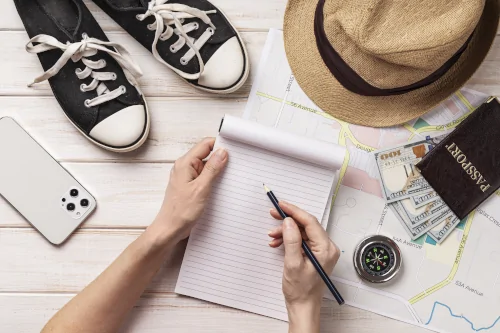
Travel preparation: 10 tips and checklist
To make the most of your trip, it is important to prepare properly before departure. To make travel and wellness become one, as mentioned earlier, organization is important.
Here are some tips and a checklist to help you plan your trip and ensure an enjoyable and rewarding experience:
1. Define your goals: before choosing a destination and type of trip, think about what you want to get out of your wellness experience. Whether it's improving your physical health, finding inner peace or learning new skills, having clear goals will help you choose the experience that's right for you.
2. Research and planning: once you have established your goals, start researching the different options available for your wellness trip. Consult online reviews, ask friends and family for recommendations, and contact facilities or trip organizers for detailed information on programs, costs, and accommodations.
3. Evaluate the budget: establish a realistic budget for your trip and keep it in mind during planning. Remember to consider the costs of transportation, lodging, meals, activities, and any extra expenses.
4. Check your travel documents: make sure your passport is valid and has at least six months validity from the date of return. Check whether you need a visa to enter your destination country and, if necessary, start the application process in advance.
5. Plan your itinerary: once you have chosen your destination and main activities, plan your daily itinerary, leaving room for relaxation and leisure time. Remember that wellness travel is also an opportunity to slow down and listen to your body, so avoid overloading your schedule.
6. Physical preparation: if your trip involves strenuous physical activities, such as hiking or extreme sports, make sure you are in good physical shape before departure. Start training early and consult your doctor if you have any doubts about your ability to handle certain activities.
7. Pack your suitcase: make a list of what you need for your trip, keeping in mind the climate and planned activities. Don't forget to bring suitable clothing and footwear, personal care products, medicines and essential electronic devices.
8. Travel insurance: consider taking out travel insurance to cover any unforeseen events, such as cancellations, delays, medical emergencies, or luggage problems. This will give you greater peace of mind.
9. Inform friends and family: tell your loved ones the details of your trip, including accommodations, emergency phone numbers, and your planned itinerary. This way, they will know how to reach you in case of need.
10. Prepare yourself mentally: before departure, take time to reflect on your goals and mentally prepare yourself for the journey. Practice gratitude, meditation or other relaxation techniques to help you get into a positive frame of mind and open to new experiences.
By following these tips and preparing yourself properly, you will be ready to embark on your journey with enthusiasm and peace of mind, ready to experience all the benefits this unique experience has to offer.
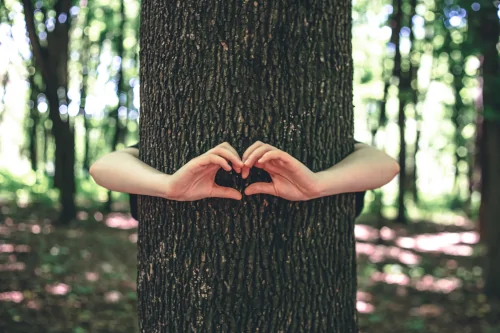
Respect for the environment and sustainable tourism
Travel and personal well-being must go hand in hand with respect for the place one is visiting, with local communities, natural and cultural resources.
When planning a trip, it is important to consider the environmental and social impact of your choices. Remember that it is not all one-way.
To make your trip more sustainable and environmentally friendly, you can consider some actions such as looking for eco-friendly destinations and accommodations, choosing environmentally friendly means of transportation, respecting nature and local culture, reducing the use of resources and waste, and choosing outdoor activities with a low environmental impact.
In particular, you can look for accommodations and destinations that adopt sustainable and environmentally friendly practices, such as using renewable energy, recycling waste, reducing plastic use, and respecting local resources.
You can also choose environmentally friendly means of transportation such as trains, buses or bicycles, and offset CO2 emissions if you have to use airplanes.
During your stay, try to minimize your impact on natural and cultural resources by respecting local rules and traditions, not harming the environment, and purchasing products and services from local suppliers.
It is a good idea to reduce the use of single-use plastic by carrying a reusable water bottle, cloth shopping bags and food containers, and to conserve energy and water during your stay by turning off lights and appliances when not in use and using water responsibly.
Finally, you can choose outdoor activities that have a low environmental impact, such as hiking, birdwatching, snorkeling, or yoga in nature, and educate yourself about the environmental and social issues of the destination you will be visiting, while also raising awareness among fellow travelers.
In this way, you can promote more responsible and sustainable tourism, improving your personal well-being and contributing to a positive impact on the planet and the people who inhabit it.
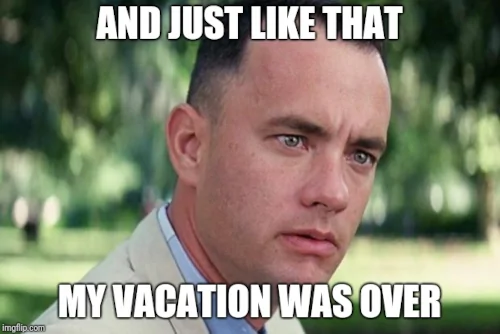
Tips for maintaining wellness after vacation
After experiencing a wellness travel experience, it is important to try to maintain and integrate the new habits and practices learned into daily life, without getting down about the end of the vacation and the resumption of school, work or home routines.
Take time to reflect on your vacation experiences, personal growth moments, and lessons learned. This will help you integrate the new knowledge and keep your motivation alive to continue taking care of your well-being.
Try to establish a daily routine that includes wellness practices, such as exercise, meditation, healthy eating and moments of relaxation. This will help you maintain your physical, mental and emotional health in everyday life as well.
If you have met people with similar interests during your vacation, try to keep in touch with them. Sharing experiences, advice, and mutual support can help you maintain your motivation and continue to grow together.
Don't stop learning and learning more about the wellness practices and disciplines that inspired you on your journey. Attend classes, workshops, and events in your area, read books and articles on the subject, and continue to explore new possibilities to enrich your wellness.
Tell your friends and family about your experiences and share with them the lessons you learned and the benefits you derived from them. This will help you keep inspiration alive and spread awareness about wellness in your community as well.
Finally, if your trip was a positive and transformative experience, start planning your next trip, even a weekend trip.
Choose a new destination or a different experience and continue to explore the endless possibilities that travel has to offer.
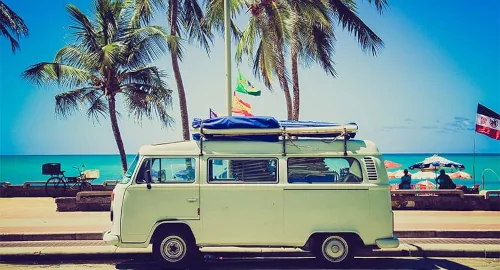
The future of wellness travel
These trips, as we have seen, offer numerous benefits and opportunities to improve the quality of our lives by promoting a healthy and balanced lifestyle.
In an increasingly hectic and stressful world, the pursuit of well-being becomes a key element in our happiness.
In the future, the trend of this type of travel is likely to continue to grow and evolve, with an increasingly broad and diverse range of experiences and destinations on offer.
Growing awareness of the importance of health, happiness and environmental sustainability could lead to an increase in demand for eco-friendly travel focused on respecting nature and local communities.
In addition, technological innovation and the spread of wellness-related devices and applications could make these experiences even more personalized and accessible to a wider audience.
Finally, travel and wellness could become an increasingly integrated element in our daily lives, with the spread of healthy practices and habits extending beyond vacation time and becoming part of our daily routine.
In this way, vacations will no longer be just a time for temporary respite and regeneration, but a real way of life, an extraordinary opportunity that can help improve our health, balance and happiness.


